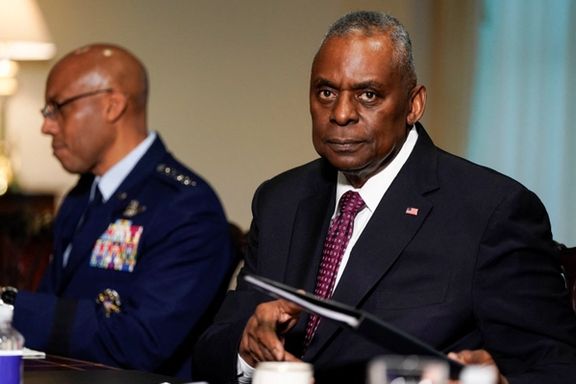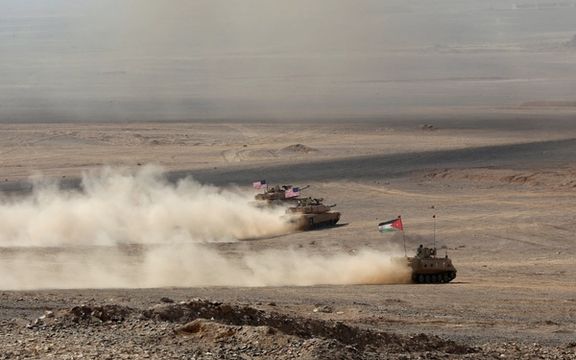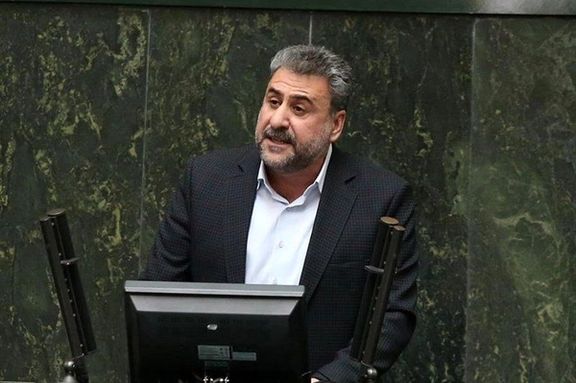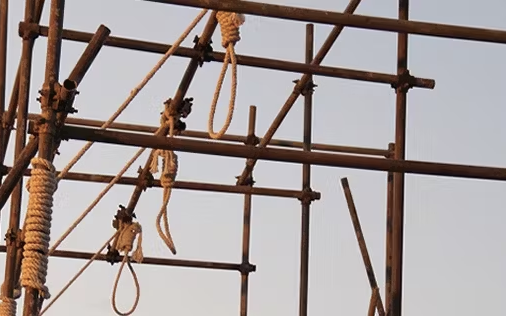Houthis Attack British Vessel In Red Sea

Yemen's Houthis on Thursday said they targeted an unidentified British merchant vessel in the Red Sea in the group's campaign to disrupt shipping to protest Israel's operations in Gaza.

Yemen's Houthis on Thursday said they targeted an unidentified British merchant vessel in the Red Sea in the group's campaign to disrupt shipping to protest Israel's operations in Gaza.
Earlier on Thursday, the United Kingdom Maritime Trade Operations (UKMTO) organization said that an explosion was reported at a distance off a vessel's starboard side west of Yemen's Hodeidah.
The vessel and crew were reported safe, UKMTO said. It was unclear whether it was the ship targeted by the Houthis.
The Houthis' attacks on shipping "will persist until the aggression stops and the siege on the Gaza Strip is lifted," the Houthi military spokesperson said in a statement.
The US and Britain have launched strikes on Houthi targets in Yemen and returned the militia to a list of terrorist groups as turmoil from the Israel-Hamas war spreads through the region. US attacked and destroyed Houthi drones on Wednesday as they prepared to launch against vessels in the Red Sea.
The Iran-aligned Houthi militants, who control the most populous parts of Yemen, have launched exploding drones and missiles at commercial vessels since November 19, after Iran's Supreme Leader urged Muslim nations to blockade Israel.
The Gaza conflict has spilled over into other parts of the Middle East. Lebanon's Iran-aligned Hezbollah has traded fire with Israeli troops along the border, and Iraqi-armed groups have attacked U.S. forces in Iraq.

The United States is preparing for strikes on Iran-linked targets in Iraq and Syria as it concluded that Iran manufactured the drone which slammed into a US base in Jordan.
Citing US officials, CBS News reported on Thursday that Washington has sanctioned plans for multi-day strikes against various targets, including Iranian personnel and facilities. CBS did not provide details on what a US approval meant in terms of a timeline for the strikes.
NBC also reported Thursday that The Biden administration hasn’t yet finalized targets, but it is preparing a “campaign” that could last “weeks.” Citing unnamed officials, NBC said the targets are expected to include Iranian targets outside Iran, and the campaign will involve both strikes and cyber operations.
The attack by Iran-backed militia forces over the weekend resulted in the death of three American service members and left more than 40 injured. Since then, the global community has been anticipating a response from the United States to the Islamic Republic.
President Joe Biden said on Tuesday that he had made up his mind on how to respond to the drone attack at the Tower 22 base in northeastern Jordan, near the Syrian border. Biden's top diplomat, Secretary of State Antony Blinken, said on Monday the US response "could be multi-leveled, come in stages, and be sustained over time."
Biden's administration said it was not seeking a war with Iran, even as Republican pressure on him to respond forcefully has been rising. Iranian officials have said Tehran will respond to any threat from the United States, emphasizing that Tehran would respond decisively to any attack on its territory, its interests, or Iranian nationals outside its borders.
Meanwhile, Iran's Revolutionary Guards, the IRGC, has reduced the presence of its senior officers in Syria due to a spate of deadly Israeli strikes and will rely more on its militia proxies. Also, Kataib Hezbollah, a pro-Iranian militia based in Iraq, said on Tuesday it was suspending military actions against the United States. Iran International reported last week that some in Tehran suspect an Israeli infiltration in tracking and pinpointing the whereabouts of senior IRGC officers in Syria.

Four US officials told Reuters on Thursday that the US has assessed that Iran manufactured the drone that slammed into the base. While the initial indications were that the drone was likely Iranian, a formal assessment was made only recently after recovering fragments of the drone.
Speaking at the Pentagon Thursday, Defense Secretary Lloyd Austin reiterated that the US will not tolerate attacks on American troops. "This is a dangerous moment in the Middle East," Austin said, pointing to Israel's ongoing war against Hamas in the Gaza Strip and attacks by Houthi rebels in Yemen on commercial shipping in the Red Sea. "We will continue to work to avoid a wider conflict in the region, but we will take all necessary actions to defend the United States, our interests and our people, and we will respond when we choose, where we choose and how we choose."
"We're still doing the forensics," Austin said. "But most of the drones that are in the region have a connection with Iran... How much Iran knew or didn't know, we don't know. But it really doesn't matter because Iran sponsors these groups, it funds these groups, and in some cases, it trains these groups on advanced, conventional weapons."
Marking an escalation in tensions that have engulfed the Middle East, the drone attack in Jordan was the first deadly strike against US forces since the conflict began on October 7, when Tehran-backed Hamas invaded Israel, killed 1,200 mostly civilians and took hundreds of hostages. US troops have been attacked more than 160 times in Iraq, Syria and Jordan since the events of October 7, a flareup aimed at pressuring Israel to cease its offensive in Gaza.
In the wake of the attack, several other Iran-funded groups have intensified attacks on US and Israeli targets in Iraq and Syria while the Houthis of Yemen have been attacking international shipping in the Red Sea. Iranian officials claim that the country has had no active role in the conflict, but the proxies are the brainchild of Iran's Supreme Leader. During 2023, Khamenei met with leaders of Hamas and Hezbollah, suggesting top level coordination of the attacks which have triggered the worst violence in the region in years.

Heshmatollah Falahatpisheh, the former head of the Iranian parliament's National Security Committee, has accused Russia of betrayal.
Speaking to Jamaran News on Thursday, Falahatpisheh said, "The Russians were looking for a partner in the crime in the Ukraine war, which is why they said they would take drones from Iran."
Iran has provided drones to Russia which have been deployed against infrastructure and civilian targets in Ukraine since October 2022, used in conjunction with missile attacks to overwhelm Ukrainian air defenses. Western nations have sanctioned both individuals and entities implicated in the supply of the kamikaze drones.
Russia has deepened its military collaboration with Iran since launching its invasion of Ukraine in February 2022. While Iran initially denied supplying Shahed drones to Russia, it later admitted to providing a limited number before the conflict erupted.
Falahatpisheh, one of the few domestic critics permitted to speak to the press, earlier also expressed concerns that Iran could become a secondary front in Russia's war against Ukraine. Critics have increasingly questioned Russia's reliability as a partner for Iran, particularly regarding nuclear issues and other foreign policy matters.
The Kremlin in November said Russia and Iran were developing their relations, "including in the field of military-technical cooperation.”

Citing multiple US intelligence sources, CNN reported that the Iranian leadership was “surprised” by the recent deadly attack against US forces in Jordan.
According to the report, Iran is now concerned about actions carried out by its proxies in the region. The Islamic Resistance in Iraq, responsible for the attack Sunday which killed three US troops and left 47 wounded, has since said they are halting actions as Tehran grows ever more nervous about rising tensions.
CNN further added that Tehran is particularly anxious about Yemeni Houthis’ attacks on commercial vessels in the Red Sea as they potentially endanger the economic interests of Iran’s allies China and India.
“There is no sense that Tehran’s growing wariness is likely to change its broader strategy of supporting proxy attacks on US and Western targets - although it could signal adjustments around the margins,” CNN quoted US officials as warning.
Following the attack Sunday, US President Joe Biden has been under increasing pressure to retaliate against Iran which, through its proxies, has launched more than 160 attacks on the US since October, in the wake of the Gaza war. The US has been targeted for its support of Israel's right to defend itself in the wake of October 7's Iran-backed Hamas invasion.
On Wednesday, over 60 US lawmakers urged stricter enforcement of Iran’s oil sanctions. In a letter addressed to Biden, House members from both parties called for “immediate action” to prevent the Iranian regime from obtaining “additional financial resources that it can use to continue supporting terrorism.”
Biden and Secretary of Defense Lloyd Austin have vowed to hold accountable “all” sides who had a part in the deadly Jordan incident.

The Biden administration is gearing up for a potential retaliation campaign against Iran after US troops were killed by Iran-backed militia on Sunday.
According to US officials speaking to NBC News, specific targets for retaliation have not yet been finalized, but Iranian interests beyond Iran's borders are under consideration. It could last for several weeks, they said.
The decision to retaliate comes after Iran-backed militants killed three US service members at a base in Jordan on Sunday, in addition to more than 160 attacks on US targets in the Middle East since the onset of the Gaza war in October. Iran-back militia have targeted the US for its support of Israel and its right to defence following the October 7 invasion by Iran-backed Hamas, which saw over 1,200 people murdered and 250 at least taken hostage.
The planned offensive is “expected to include Iranian targets outside Iran, and the campaign will involve both strikes and cyber operations,” added the officials.
President Biden stated on Tuesday that he had decided on the country's response to the proxy drone attack but refrained from disclosing further details. On Monday, US Secretary of State Antony Blinken also emphasized that the country's approach to responding to the attack would be "multi-tiered."
In Tehran, the government reiterated it would not tolerate attacks on its territory. State media quoted Iran's foreign minister, Hossein Amir-Abdollahian, as telling a cabinet meeting: "The US has to stop its threats and focus on a political solution."
Iran's United Nations envoy Amir Saeid Iravani, also said on Wednesday that Tehran would respond "decisively" to any attack on its territory, its interests, or Iranian nationals outside its borders, as reported by Reuters.

The Australian Department of Foreign Affairs and Trade has criticized the increase in executions in Iran which is at record levels amid ongoing crackdowns on dissent.
"The Australian government is deeply disturbed by Iran’s extensive and persistent use of the death penalty, including against ethnic minorities and protesters," the department said in a statement on Thursday in response to inquiries from Iran International.
Emphasizing its opposition to the death penalty, the Australian Department of Foreign Affairs urged Tehran to cease executions immediately.
A notable increase in executions has been observed in Iran, with the Islamic Republic carrying out 90 executions between December 22 and January 21. According to reports from UN experts, in 2023 alone, Iran executed a minimum of 834 individuals, eight of whom were reportedly associated with nationwide protests.
Additionally, Canberra reiterated its stance against Iran's destabilizing activities in the Middle East and beyond, including its support for armed proxies.
“Australia remains concerned with Iran’s destabilizing behavior, including its support for armed proxies in the Middle East. We condemn the recent drone attack by Iran-backed militants on a US base in Jordan which killed three US troops and wounded dozens more. Australia also unreservedly condemns Houthi attacks in the Red Sea, which constitute a threat to navigational rights and freedoms, international commerce, and maritime security.”
Iran and its regional allies have escalated their activities against Israel and the US since October when war was sparked by Iran-backed Hamas's invasion of Israel, killing 1,200 mostly civilians in a single day.
Over the past nearly four months, militias supported by Iran in Iraq and Syria have carried out more than 160 attacks on US facilities and personnel in the region.